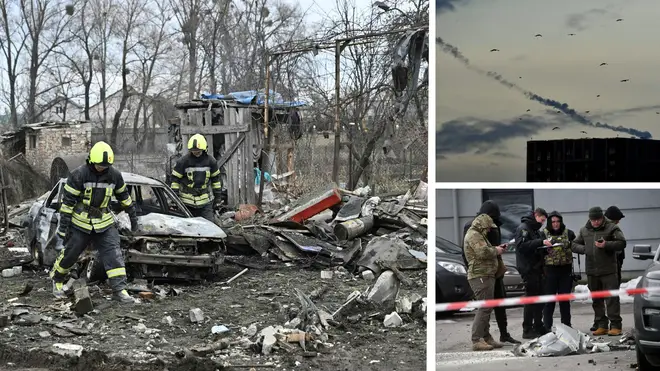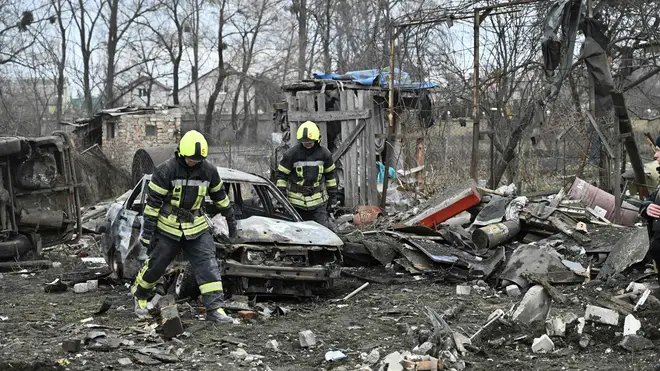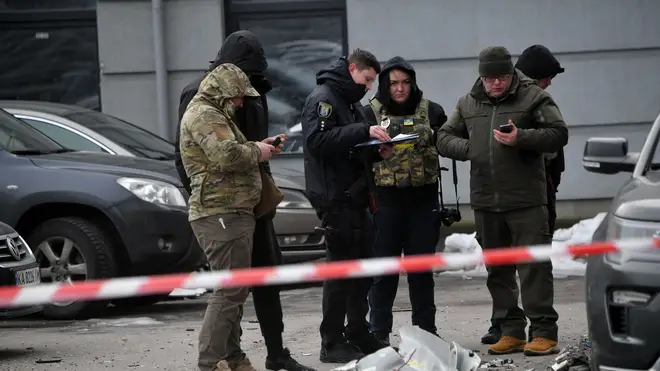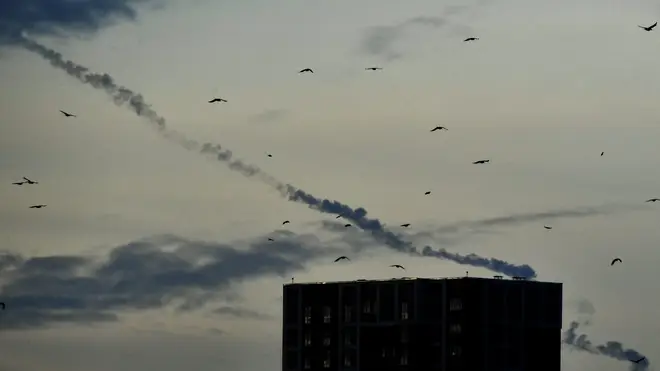
Richard Spurr 1am - 4am
29 December 2022, 12:18 | Updated: 29 December 2022, 12:31

Ukraine has been bombarded in a massive air attack against its cities, leaving parts of the country without power.
Russia fired dozens missiles and kamikaze drones overnight after it rejected the basis of peace talks outlined by Volodymyr Zelenskyy.
Ukraine said that 69 missiles were fired in the salvo and claimed air defences shot down 54. Earlier, a presidential adviser said more than 120 were thought to have been launched.
With Putin’s future tied to the outcome of his utterly failed invasion, the Kremlin looks set to continue to batter Ukraine in the hope of forcing a victory while its military is left trying to hold what remains in its hands.
Kyiv, Kharkiv and Lviv were among the cities hit by the airstrikes. Lviv, in the west of the country, was left without electricity.
About 40% of the capital Kyiv was said to be without power while Lviv lost 90%, according to the mayor there. Oleksiy Arestovych, an adviser to President Zelenskyy, said it was a “massive air raid”.
“More than 100 missiles in several waves,” he added.
Read more: Russian ex-army chief dies suddenly after Putin snubs visit to his tank factory
Read more: Russian businessman who criticised Ukraine invasion dies after falling from window of luxury hotel

Any peace talks seem like a distant prospect as Ukraine demands the return of its territorial integrity while Moscow wants the four regions in the east and south it insists are now part of Russia – having been illegally annexed despite its military not even controlling any of them entirely – to be recognised as such.
The Kremlin rejected Volodymyr Zelenskyy's proposal for a basis for peace talks.
After the second half of the year brought stunning Ukrainian successes in the east and the liberation of Kherson in the south, the front lines have effectively frozen under cold temperatures.

There remains a bloody contest in Bakhmut, in the east, where Russia has been accused of adopting human wave tactics in an apparent desperate bid to take the city and allow the Kremlin to claim some kind of win after months of defeats.
Russia called up what could be around 300,000 men to bolster its military, putting some into regions they hope they will be able to hold against any future Ukrainian attacks. Some are said to be in support roles.
The quality of their training and equipment has been called into question – as has their will to fight when the time comes – and Moscow is thought to be under the kosh when it comes to resupplying its forces with ammunition and precision munitions as its economy buckles under heavy sanctions.

Kyrylo Budanov, the head of Ukraine’s intelligence, said of Russia’s attacks on civilian infrastructure: "Continuing that thought, can they do this long? No, because there are not many missiles left."
Russia’s attacks have focused on Ukraine’s energy infrastructure, attempting to plunge the country into a deep freeze over winter.
Energy warfare has been a lynchpin of Russia’s strategy but its dreams that Europe would back down from supporting Kyiv if cut off from supplies from the east have not become reality – even as Kremlin propaganda tells its citizens that Europe is practically on its knees over fuel and power crises.